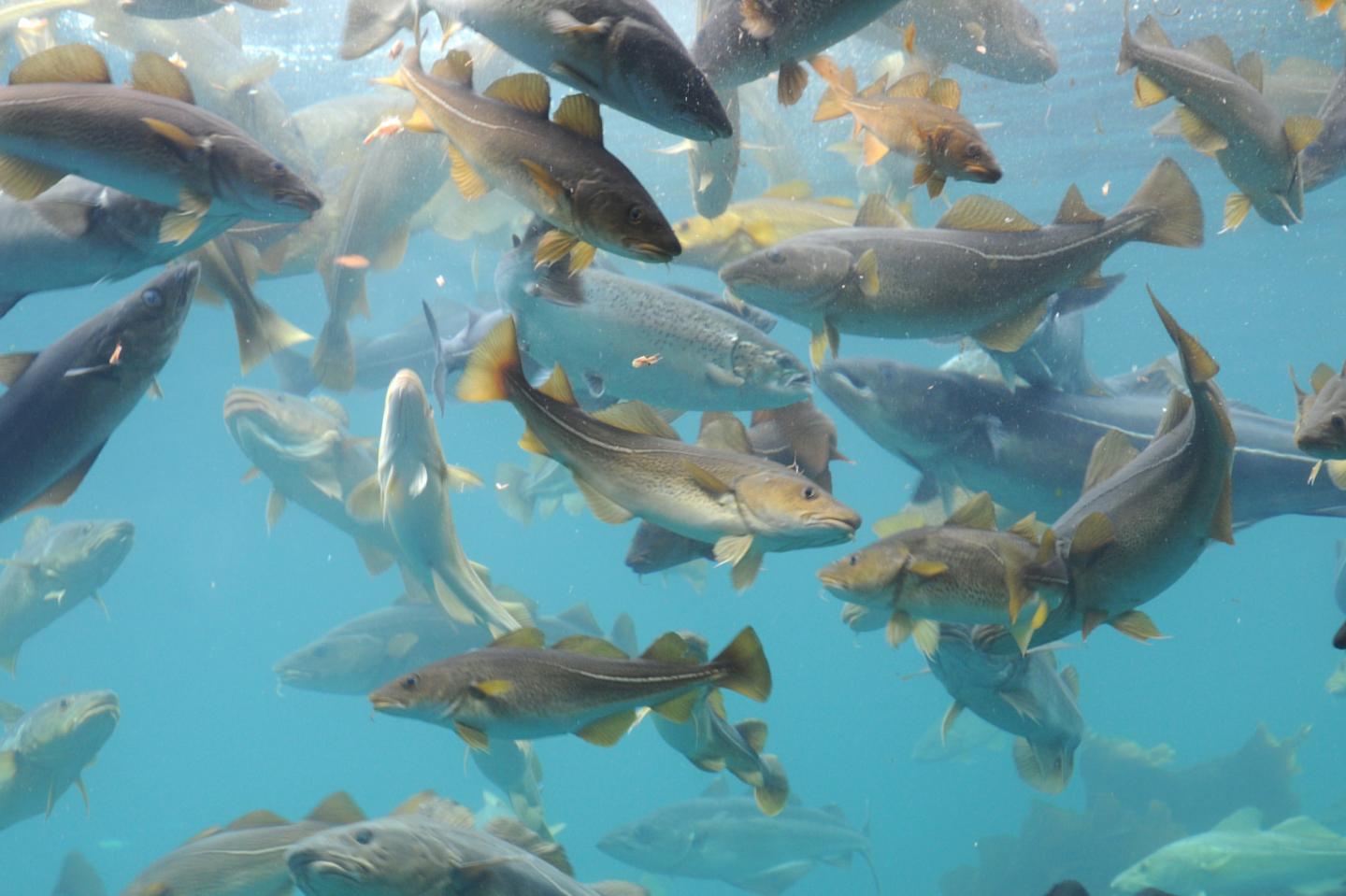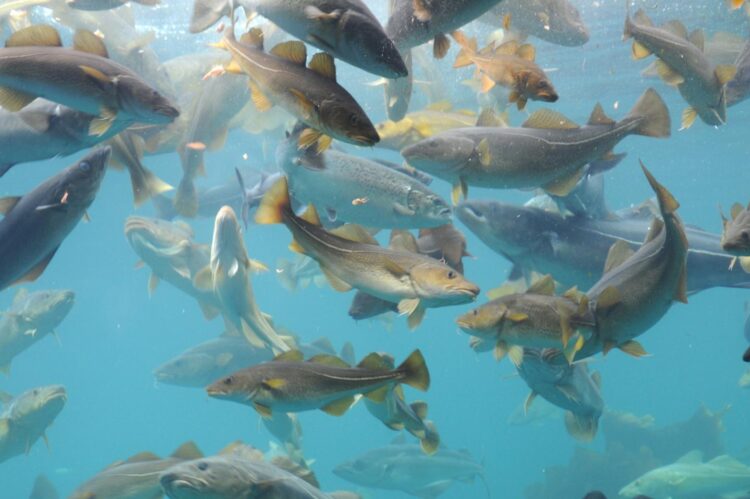Hereon scientists develop new fisheries management planning tool — fewer stocks expected

Credit: Photo: David Young via Fotolia
The future of cod stocks in the North Sea and the Barents Sea may be much easier to predict than before. This is the result of an international research project led by the Helmholtz-Zentrum Hereon and its Institute of Coastal Systems – Analysis and Modeling. For the first time, the team has succeeded in predicting the development of stocks for ten years in advance, taking into account both changes due to climate and fishing. Traditionally, fisheries experts provide catch recommendations for about a year in advance, on the basis of which fishing quotas are negotiated and set internationally. This involves first estimating the size of current cod stocks and then calculating how much cod can be caught in the coming year without endangering the stocks as well as harvesting the stock optimally. The climatic change, long-term changes in water temperature, circulation and mixing, which have a decisive influence on how well cod reproduce, are not included in this prediction, so that the development of stocks can only be predicted in the short term.
Warm North Sea causes stress
As the experts around climate modeler Vimal Koul und Corinna Schrum of Hereon now write in the journal Nature Communications Earth and Environment, they have taken temperature into account in their calculations. For the North Sea, the climate forecast continues to predict temperatures at a high level, so that cod stocks are unlikely to recover or reach earlier levels. As a result, catches are expected to remain low. Things look better for the Barents Sea, where stocks can be managed sustainably.
For the researchers, the challenge was that climate models cannot calculate how much fish there will be in the oceans in the future. They only provide information about expected temperatures. “So we first had to develop a program that translates water temperature into fish quantities,” says Vimal Koul. Among other things, this took into account the ocean temperature in the North Atlantic. The researchers were then able to run their prediction model. The model starts with today’s conditions – the current temperature conditions and the current carbon dioxide content of the atmosphere, and can then calculate how the situation will change as carbon dioxide concentrations increase. The future temperatures are then translated into expected fish abundance and stock sizes.
To test how reliably the model works, it was first compared with real fish data from the 1960s to the present. As it turned out, it was able to correctly estimate fish stocks for the ten-year periods since the early 1960s. In this respect, the researchers led by Vimal Koul can assume that the current view of the coming ten years is also correct.
Fishing intensity taken into account
Another interesting aspect of the study is that the team of climate modelers, fisheries biologists and oceanographers took four different fishing scenarios into account. This allowed them to determine how cod stocks would fare if they were fished at different levels – from intensive to sustainable. In this respect, the results of the current study are very practical. “The 10-year estimates will help the fishing industry better plan catches in the future – so that cod stocks are fished sustainably and gently despite changes in climate,” says Vimal Koul. The new 10-year calculation model could also help fishing companies in their strategic planning – by providing a secure basis for investments in new vessels or processing facilities.
###
Media Contact
Christoph Woehrle
[email protected]
Original Source
https:/
Related Journal Article
http://dx.





